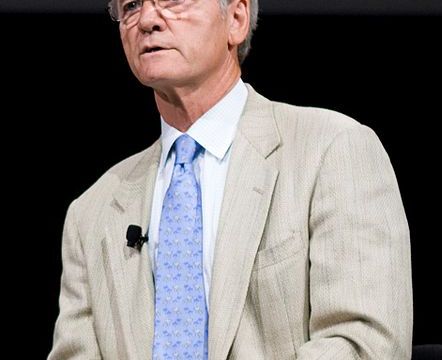The Best Essays on Politics 2009, Part I—The Economy

As the year draws to a close, I want to finish by passing along my personal list of the most interesting essays on political issues from 2009. My selections are partly inspired by David Brooks’ excellent SidneyAwards. Today I want to start by looking at what I thought were the best articles on the issue that loomed over all the others in American politics this year—the poor state of the American economy.
In “The End of the Financial World as We Know It” and “How to Repair a Broken Financial World” (The New York Times, January 4), Michael Lewis and David Einhorn argue that the problem wasn’t that no one knew the deals that brought down the economy were bad, but that no one had much incentive to put a stop to them. As long as there is no real cost to evaluating risk incorrectly—and as long as we continue to effectively guarantee the performance of financial institutions—financial firms will continue to make unwise bets, knowing they are playing with house money.
The Madoff scandal echoes a deeper absence inside our financial system, which has been undermined not merely by bad behavior but by the lack of checks and balances to discourage it. “Greed” doesn’t cut it as a satisfying explanation for the current financial crisis. Greed was necessary but insufficient; in any case we are as likely to eliminate greed from our national character as we are lust and envy. The fixable problem isn’t the greed of a few but the misaligned interests of the many.
In “Keeping America’s Edge” (National Affairs, Winter), Jim Manzi takes a thoughtful look at the tension between fostering technological innovation and economic growth and maintaining a stable and equitable economy. He argues that it would be a mistake to return the more-regulated days before Reagan, but at the same time—if this is possible—we need to make sure that we are insulated from the risks taken by the most aggressive financial firms.
If we reverse the market-based reforms that have allowed us to prosper, we will cede global economic share; but if we let inequality and its underlying causes grow unchecked, we will hollow out the middle class — threatening social cohesion, and eventually surrendering our international position anyway. This, and not some world-is-flat happy talk, is what the challenge of globalization means for America.
In “Obama’s Big Sellout” (Rolling Stone, December 9), Matt Taibbi takes President Obama to task for giving complete control of his financial policy to Wall Street insiders connected with former Secretary of the Treasury Robert Rubin. Although it’s too simple to write Obama’s financial team off as a bunch of “callous millionaire assholes,” as Taibbi does, he’s right to point out the incredible conflict of interest involved in having bankers regulate themselves, as well as the shocking extent to which what passes for financial reform is really little more than a giveaway to financial firms.
The significance of all of these appointments isn’t that the Wall Street types are now in a position to provide direct favors to their former employers. It’s that, with one or two exceptions, they collectively offer a microcosm of what the Democratic Party has come to stand for in the 21st century. Virtually all of the Rubinites brought in to manage the economy under Obama share the same fundamental political philosophy carefully articulated for years by the Hamilton Project: Expand the safety net to protect the poor, but let Wall Street do whatever it wants.
In “Upper Mismanagement” (The New Republic, December 18), Noam Scheiber argues that part of the problem with American industry is that we have been producing too many finance experts and not enough people who know how to run a factory or manage a business.
Since 1965, the percentage of graduates of highly-ranked business schools who go into consulting and financial services has doubled, from about one-third to about two-thirds. And while some of these consultants and financiers end up in the manufacturing sector, in some respects that’s the problem. Harvard business professor Rakesh Khurana, with whom I discussed these questions at length, observes that most of GM’s top executives in recent decades hailed from a finance rather than an operations background…. But these executives were frequently numb to the sorts of innovations that enable high-quality production at low cost. As Khurana quips, “That’s how you end up with GM rather than Toyota.”
And finally in “The Big Zero” (The New York Times, December 27), Paul Krugman totals up how much economic progress we’ve made in the last decade: zero.
… from an economic point of view, I’d suggest that we call the decade past the Big Zero. It was a decade in which nothing good happened, and none of the optimistic things we were supposed to believe turned out to be true.





